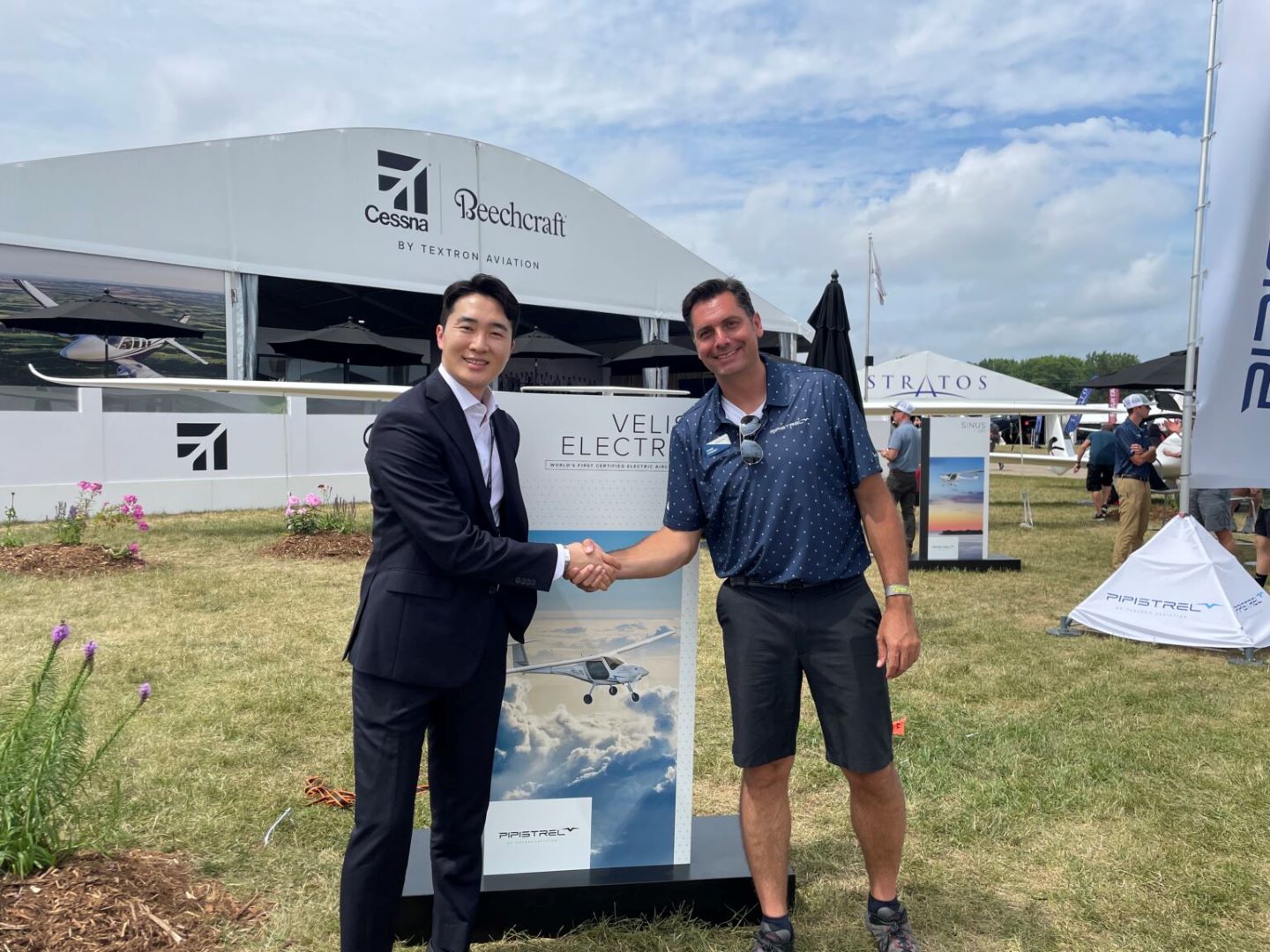
South Korean startup Toff Mobility announced it will offer passenger and logistics services in Asia via electric flight in 2024, with an expansion of its services to Ulleung Island, Jeju Island, and local airports in 2026.
The newly founded company claims to have launched “Asia’s first electric aircraft company” in aid of achieving South Korea’s mission of zero carbon emissions.

Discover B2B Marketing That Performs
Combine business intelligence and editorial excellence to reach engaged professionals across 36 leading media platforms.
Toff Mobility intends to use EASA-certified electric aircraft and will form a team of professionals with real-life expertise with both electric and fossil-fuel aircraft to ensure safety and stability.
Chanyoung Jung, CEO highlighted that it wants to prepare for commercialization through a series of “in-depth investigations.”
South Korea’s parliament enacted a measure allowing government funding for urban air mobility (UAM) transportation infrastructure, which is set to assist potential operators.
The Ministry of Land, Infrastructure, and Transport (MOLIT) announced the start of the Korean Urban Air Mobility (K-UAM) Demonstration Project, with the objective of commercializing UAM, by 2025.

US Tariffs are shifting - will you react or anticipate?
Don’t let policy changes catch you off guard. Stay proactive with real-time data and expert analysis.
By GlobalDataAirport Technology: What is Toff mobility and what are your aims for the company?
Chanyoung Jung: Toff Mobility is an electric aircraft company, based in South Korea, aimed at making its mark in the electronic aviation industry.
We presently have five employees, and we are all working hard on submitting our research and development demonstrations to the [South] Korean Government, Korean universities, and other research and development centres.
My ambition for the company comes from my own experience within the aviation industry spanning 10 years.
With 6,000 hours of flight time and three years in the UAM sector, I have established ideas and conducted research on future aviation mobility, leading me to have confidence in the feasibility and financial potential of building an electric airline.
With aims of future expansion into airport infrastructure and cargo delivery, we aim to be Asia’s largest air mobility company by 2030.
Furthermore, through the support of the [South] Korean Government, we aim to create an electric aviation sandbox allowing us to run our project with fewer regulations.
AT: What flight operations will you provide and when do you expect South Korean approval?
CJ: We aim to start tourism and logistics flight services in the second half of 2024 and then expand our services regionally to the Ulleung Island, Jeju Island and local airports in 2026.
We plan to do our first flight from Korea in the second half of 2023 or early 2024.
Regarding certification and regulation, TOFF MOBILITY is in progress with related organizations.
Since it has been certified by EASA, regulations and related certifications are in progress in Korea, and all processes for operation will be completed through safety certification after the plane arrives.
There are no major difficulties in proceeding with related regulations and certifications in Korea. Electric airplane chargers are also discussed for commercialization with related grounds and safety as the top priority.
Although the whole process is not smooth, the related organizations are interested in eco-friendly electric aeroplanes, so they are proceeding with amicable cooperation.
AT: Are you buying aircraft, or hoping to produce them?
CJ: We have completed a contract for the purchase of aircraft. It is an EASA-certified Pipistrel aeroplane (Pipistrel Velis Electro), and commercialization has already begun in the United States and throughout Europe. This price may vary depending on the option and the terms of the purchase agreement. It is approximately $200,000 to $250,000.
AT: What characteristics of Toff Mobility advance aviation over traditional aircraft?
CJ: At Toff Mobility we believe there are three aspects which will advance electric aircraft compared to traditional aircraft.
Firstly, the operational cost of UAM aircraft will be comparatively lower than traditional fossil-based aircraft. Our electric aircraft will be dependent on battery technologies, moving away from the heavy cost of fossil-based fuels and engine maintenance.
Furthermore, at Toff Mobility we will do our best with responsibility for carbon-zero tourism and creating new experience values for passengers.
Another advantage of the electric aircraft we will provide is that the noise level is lower when compared to regular aircraft.
Toff Mobility will also bring sustainability and a reduction in fuel emissions, which will align with Korea’s aim of carbon neutrality by 2050.
Because our aircraft are electric, they emit no carbon dioxide during flight. As a result, they are more ecologically friendly than traditional aircraft that use fossil fuels.





